June 14, 2019
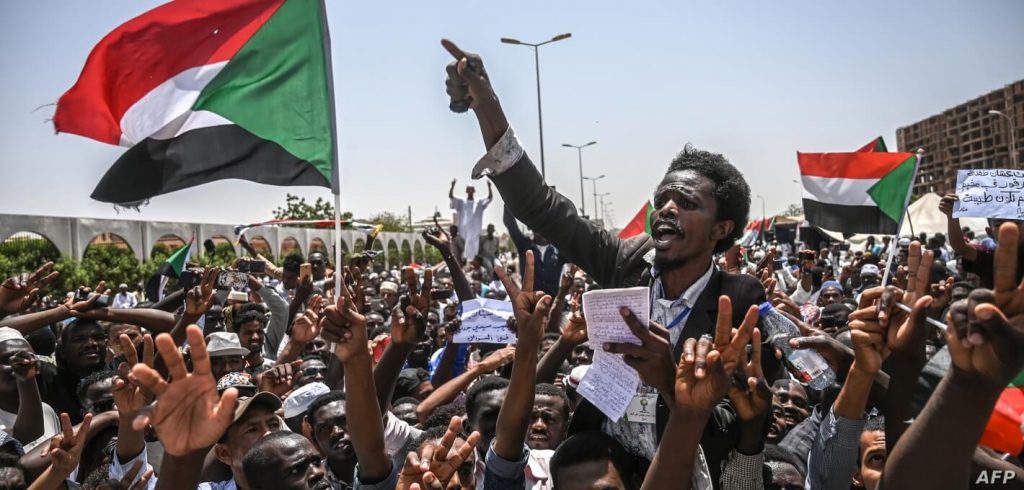
Sudanese protesters wave national flags as they chant slogans during a sit-in outside the army headquarters in the capital Khartoum, April 26, 2019. VOA.

Nicaragua’s Congress passed a sweeping amnesty law backed by President Ortega that offers protection to police and military officers who took part in the government’s violent suppression of anti-government protests last year. Nicaraguan lawmakers said they were taking a stand for national unity, but the move has been rebuked by the United Nations’ top human rights official, Michelle Bachele. Those opposed to the law cite that it impedes the ability of domestic and international actors to determine who violated human rights; other opposition groups say that it offers impunity to violent state sponsored criminals. Another objection to the newly passed law is that it stipulates that political opposition members released cannot partake in new protests –– opposition members demur the law: “Free, but still imprisoned.”

Tension and hostility continued to grow between the United States and North Korea this week. The United States, along with 25 other countries, is accusing North Korea of violating United Nations sanctions on the import of refined petroleum via illegal ship-to-ship transfers. A report submitted to the UN sanctions committee by the US calls for the immediate halt of these petroleum transfers and for stricter enforcement of sanctions against North Korea. Meanwhile, North Korean state media called for the United States to change its “hostile policy” towards the North on the eve of the one year anniversary of the US-North Korean Nuclear Summit. This announcement comes at the same time the Research Center for Nuclear Weapons Abolition at Nagasaki University in Japan released a report saying that the North has up to 30 nuclear warheads in a growing stockpile.
The human rights situation in the North has not improved since the Nuclear Summit. A South Korean based human rights watchdog, The Transitional Justice Working Group (TJWG), has identified over 300 purported execution sites across North Korea. After four years of research and interviews with over 600 North Korean defectors, the TJWG concluded that these public execution sites were used “as part of an arbitrary and aggressive use of the death penalty designed to intimidate its citizens.” Neither the North Korean or United States governments have responded to the report, although President Trump has recently cast doubt on the supposed execution of North Korea officials involved in nuclear talks with the US.

A revived free speech movement in Myanmar known as “Blue Shirts” have spoken out against the recent arrests of their activists. Myanmar’s military have shown little mercy on activists, many of which are facing charges for their connection to the protests. Civil society groups in Myanmar, such as Athan, Coexist Myanmar, and the Burmese-American Saddha: Buddhists for Peace have spoken in support of the activists and their right to freedom of speech. Activists say that 30 cases have been brought against people in Myanmar just between April and May. The group has also been active in their attempts to release two Reuters journalists reporting on the human rights violations committed against Rohingya Muslims .
This week, Bangladesh’s State Minister for Foreign Affairs M Shahriar Alam met with UN Secretary General Antonio Guterres to discuss ongoing human rights violations of Rohingya Muslims and Myanmar’s unwillingness in starting the repatriation. Bangladesh has taken over 1.2 million Rohingyas, forced to leave Myanmar after a brutal crackdown targeted the ethnic minority towards the middle of 2017. Myanmar was supposed to begin repatriation in January of 2018, only to be delayed to November 15, 2018, and still no significant progressions have been made.

The United States Commerce Department announced Monday that the 2020 Census will have a question of citizenship. The question was part of a pledge made by the Trump administration in order to better enforce the Voting Rights Act, and has been opposed by most democratic lawmakers and a number of immigrant-rights groups. The State of California also filed a lawsuit against the Trump administration over the question, arguing that it violates the constitution. Critics say that asking for citizenship status is racially motivated and could deter non-citizens from filling out the census, leading to a population undercount. President Trump has defended the question, saying that it would be “ridiculous” not to ask it. Democrats have voted to hold the Trump administration officials in contempt for refusing to hand over the files with the motivation for the question.

Mexico is rapidly fortifying its southern border with Guatemala under pressure from the United States. It was given a 45-day deadline to establish a high-security border infrastructure at the fairly porous border with Guatemala, a stretch of jungle, river and mountains. Although Mexico’s president Andres Manuel Lopez Obrador stated that the country’s migration policy will remain welcoming and progressive, the government sent 6000 troops to the southern border. The Trump administration threatens tariffs and designating Mexico as America’s enemy if the country does not meet the deadline imposed by the United States.

India’s newly elected statesman, Prime Minister Narendra Modi, made his first diplomatic trip to the Maldives where he promised to build a new cricket stadium and train young Maldvian men in the sport. The trip and gift by Prime Minister Modi was more than just an altruistic token: sources find that India sees an opportunity to use its soft power to draw the strategic archipelago deeper into its political orbit, and away from India’s economic rival, China. The trip is one of many diplomatic trips Modi and other ranking Indian officials will be taking into the region to solidify the world’s biggest democracy’s hegemon in the region. India also announced that it will restart tri-lateral NSA-level talks with Sri Lanka and the Maldives.

In a continuing crackdown on civil society in Zimbabwe, the Zimbabwe National Army’s Military Intelligence (MI) unit placed several activists on its watchlist that it claims are planning to unseat President Emmerson Mnangagwa through violent activities. The MI unit claims that the people who were put on the list were being sponsored by and working closely with US nationals to unleash unrest across the nation. The activists have denied the allegations, saying the allegations fit into a larger crackdown on civil society after the government’s prosecution of seven human rights activists trained by CANVAS. This comes amidst fears that the deteriorating economy could plunge Zimbabwe into chaos and anarchy if the leaders of the major political parties fail to address societal issues without resorting to violence. A worrying report shows that the Mnangagwa government is preparing plans to crack down on any demonstrations. The report shows that steps taken in preparation include training police officers in paramilitary tactics and purchasing weapons and ammunition such as assault rifles and mortar bombs and grenades.
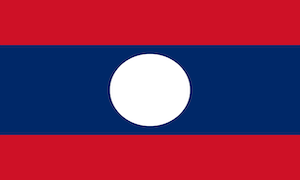
Following the dam collapse in the province of Attapeu in July 2018, the government has once again fallen behind on living allowance payments promised to survivors. Each survivor is entitled to $12 per month, as many have lost their property and family members as a result of the collapse. In November 2018, the government did not pay allowance for two months, and it seems they are back in a similar cycle.

A border point between the DRC and Uganda is on high alert after a family infected with ebola was able to escape an isolation unit and cross into Uganda. Two of them died a few days after crossing the border. The spread to Uganda comes after months of trying to contain usually porous border crossings with rigorous health checks and isolation units. While there was a huge effort to keep the disease from spreading into Uganda, many are not surprised that it eventually did – though there are questions on how the family was able to get across the border with such heightened security. In order to contain the spread of the disease, the Ugandan government has suspended market days and urged people to stop shaking hands and hugging. Since the outbreak began in the DRC, nearly 2000 cases have been confirmed, with over 1300 confirmed deaths.

Since the start of 2016, as Colombia began implementing its peace treaty with the leftist guerrilla group FARC, over 500 activists have been killed, including indigenous leaders, Afro-Colombian activists, and human rights campaigners. As the United Nations encourages the state to fully investigate the deaths of these human rights activists and campaigners, Bogota’s central Bolivar Plaza is becoming the site for a public display of art by artist Doris Salcedo and other community organizers as they etch the names of the dead using broken glass.
Meanwhile, Jesus Santrich, a former FARC rebel, wanted in the United States for cocaine trafficking, has been sworn into office as a congressman, taking one of the 10 seats guaranteed for former rebels under the peace deal and evoking the anger of the detractors of the peace agreement.

World leaders are expected to meet in Stockholm, Sweden to discuss the ongoing conflict in Venezuela. Attendees of the meeting are expected to be Russia, some members of the EU, some members of the UN, and other countries. The United States was invited to the talks but decided against participating. Further, the Venezuelan government has put into circulation new banknotes that are aimed at lessening the economic burden on Venezuelans. However, people are skeptical, claiming that the banknotes make it more difficult to obtain change and will not alleviate the economic crisis.
On June 12, thirty-two Venezuelans went missing when their boat sank on its travel to Curacao, according to a politician. According to BBC, this is the third boat to capsize in recent weeks and is only a small fraction of the consequences of the severe economic crisis that has ravaged Venezuela and lead to an estimated four million leaving the country since 2015.
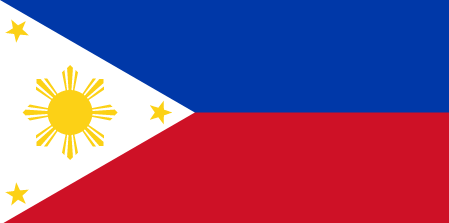
President Duterte uses death squads to pursue his “War on Drugs,” but in an alarming development this week Duterte has turned the death squads on political activists. Vigilante death squads back by the government are killing farmers and protestors across the Philippines while the government is calling these protestors “armed communist rebels.” Duterte recently threatened to suspend the writ of habeas corpus for critics due to claims of a supposed communist plot to unseat his presidency. Activists are concerned that the President’s forces are indiscriminately using the death squads to go after his opponents.

Following election results in Thailand, opposition leader Thanathorn Juangroongruangkit revealed to DW that he will not give up hope in becoming prime minister. Thanathorn represented the Democratic Front, an anti-military coalition, after his initial Future Forward Party (FFP) came in third in March’s vote. Thanathorn still faces legal charges, which could ultimately ban him from participating in politics. Voters of the opposition were vocal on social media following the election results, with hashtags #RIPTHAILAND and #NotMyPM trending on Twitter.

Michael Nguyen, a United States citizen detained in Vietnam on charges of “attempting to overthrow the state” is expected to go on trial at the end of the month. If found guilty, he could face the death penalty. Nguyen, along with two other activists, was arrested last July while traveling. Since a change in leadership three years ago, Vietnam has been intensifying its crackdown on dissidents. According to Amnesty International, 128 prisoners, including lawyers, human rights defenders, and pro-democracy campaigners, are currently being held for similar crimes.

Iranian TV reported that Nizar Zakka, a permanent resident of the United States who had been arrested in 2015 on disputed spying charges, was released from prison on June 10. The act, coming at a time when American-Iranian tensions have come to a boil, seems to be an effort to repair relations between the two countries.
Reports arrived claiming that two tankers, one belonging to Norway and one to Japan, suffered explosions in the Gulf of Oman on June 13. By the afternoon, US Secretary of State Mike Pompeo claimed that Tehran was responsible for the attacks, further fueling tensions between the two countries. Late Thursday, the US Military released a video of what appears to show Iranian Naval forces removing an unexploded mine from one of the ships. The attacks came the same day that Japanese Prime Minister Shinzo Abe met with Iranian Supreme Leader Ayatollah Ali Khamenei in Tehran, ensuring the Iranians’ commitment to peace and de-escalation of tensions in the region. The attack raises questions about American-Iranian relations and the security of one-third of the world’s oil that passes through the waterway.

After negotiations with an Ethiopian envoy in Sudan, opposition protestors agree to suspend civil disobedience in exchange for concessions from the military on Tuesday June 11. With little progress being made, more international actors step in. On Thursday June 13, the United States named Donald Booth as the special envoy to Sudan to ensure American aid in finding a peaceful solution between protestors and the Transitional Military Council (TMC). Boothis set to meet with envoys from Saudi Arabia, Egypt, and the United Arab Emirates.
In addition to the network shutdown, events in Sudan have begun to gain coverage on social media, particularly on Twitter and Instagram where users have changed their profile pictures to blue backgrounds to show solidarity with those who have died and those who continue to protest in Sudan.
In most recent news, Human Rights Watch published a statement urging an end to the network shutdown immediately. “If the Transitional Military Council genuinely intends to restore peace and maintain good will with civilian opposition leaders, it should reverse this dangerous shutdown, which puts even more lives at risk,” said the acting emergencies director at Human Rights Watch. Further, On June 14, the TMC claimed responsibility for the attack that left over 100 dead in the capital city of Khartoum over a week ago. The spokesperson for the TMC, Sams al-Din Kabashi, stated, “We ordered the commanders to come up with a plan to disperse this sit-in. They made a plan and implemented it … but we regret that some mistakes happened.”
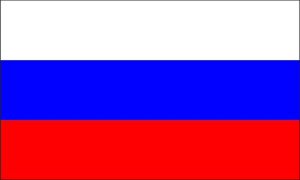
Police authorities abruptly released investigative journalist Ivan Golunov after being arrested for drug possession in Moscow last week. Golunov denies the allegations, and opposition members argue it’s just the Kremlin suppressing free media. Before Golunov was released, thousands peacefully protested with the notoriously factitious opposition members rally around the “fabricated criminal case.” Over 500 of the marchers were detained for participating in an unauthorized rally,” including prominent Russian opposition leader Alexei Navalny and other known journalists.
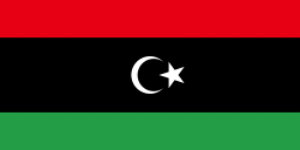
Armed clashes over control of Tripoli resumed yesterday between the UN-recognized Libyan government (GNA) and its rival forces affiliated with Gen. Khalifa Haftar. Despite an offensive started in April by Haftar’s forces to take Tripoli from the UN-recognized government, the GNA has retained its grip on the capital city. The US has called for a political solution between the two governments, even as the GNA is optimistic that it has the full support of the US government and that the US government will pressure Saudi Arabia and Egypt to end their support for Haftar. The continued fighting comes as UN Secretary-General Antonio Guterres called for all countries to implement a UN arms embargo against Libya. The appeal was made before the UN Security Council approved a resolution that authorized the inspection of ships going to and from Libya in order to implement the embargo.

A social media campaign has begun in Eritrea to oust Isaias Afwerki and force change in the one-party state. The campaign was inspired by the neighboring state Sudan’s overthrow of longtime ruler Omar al-Basshir. The campaign, #Enough in Arabic, Tigrinya, and other Eritrean languages, has been modeled along the lines of the viral ice bucket challenge, and has been started mostly by young Eritreans living in Europe and the United States after being forced to leave their country. The campaign on Facebook and Twitter calls on people to share and nominate their friends, as well as celebrities, to speak out on violence and repression in the country. Activists in the country have also taken to distributing leaflets and flyers to spread the word, since only 1.3% of the population has access to the highly restricted internet. Thirty human rights organizations also authored a letter this week to the UN HUman Rights Council calling out the worsening human rights situation and urging the council to support the adoption of a resolution to “maintain a monitoring and reporting mandate on the human rights situation in Eritrea”.
Mr. Isaias first took power in 1993, and there has not been an election since. The government has banned all opposition parties and private media, as well as arresting critics and enforcing a military draft, forcing tens of thousands of young people to flee into Europe. Many had hoped that a peace deal with neighboring Ethiopia would open up political space, but Isaias remains as authoritarian as ever.

On June 10th, Agnes Chow, a prominent student activist from Hong Kong went to Tokyo to present the protestors’ case to Japanese media and politicians in a bet to get their backing, vowing to resist the extradition bill. In response to the extradition bill proposed by the pro-Beijing Chief Executive of Hong Kong, Carrie Lam, the United States declared that the bill puts Hong Kong’s special status under the 1992 Hong Kong Policy act in jeopardy. The act allows the semi-independent entity to be treated as distinct from China in trade and economic matters — if the United States abrogates the special status, Hong Kong would be struck by the ongoing tariff war between the US and China.
On June 12th, as Hong Kong’s lawmakers got ready to debate the bill, the legislative session was delayed due to the protests that shut down parts of the city. The police responded to the protests by using rubber bullets, pepper spray, tear gas and by employing violence, brutalizing the peaceful protesters, leaving 72 people injured. After the imprisonment of the leaders of the 2014 Umbrella Revolution, the mood in Hong Kong is much darker, as protesters don hard hats and refuse being photographed in fear of reprisals. The encrypted messaging application Telegram, used by the protesters was also a target of a major hacking campaign, most likely carried out by Beijing. As the final vote on the bill is scheduled for June 20th, the protesters are getting ready to continue their manifestations this weekend and next week.
Algeria – Algeria’s peaceful protest movement continues throughout this week, the grassroots movement known as “Hirak” among Algerians demanding a civilian-led transition to democracy. Algerian Army chief Ahmed Gaid Salah pushed out former Algerian President Abdelaziz Bouteflika about two months ago, and mass peaceful protests have persisted since. The military and protestors have yet to turn violent, one prominent sociologist of Algeria citing the reason for this among Algerian generals being, “because they are not sure their troops will be loyal to them.”
Moldova – After an inconclusive election in February, a coalition was formed between the pro-Russian Socialists and the pro-EU ACUM on June 8th, in a bet to unseat the Democratic Party, run by a prominent oligarch, Vlad Plahotniuc. The coalition was immediately challenged by Plahotniuc’s party, backed by the Constitutional Court, for missing a June 7th deadline. The court proceeded to unseat Socialist president Ivan Dodon, appointing former Democratic Party Prime Minister Pavel Filip as interim president, who called snap elections. The rival governments are vying for power, as the coalition Prime Minister Maia Sandu, with the support of Russia and European countries, tells civil servants to ignore the orders of the outgoing government.
Lebanon – Though Lebanon hosts over 1 million Syrian refugees, the country has remained firm on preventing the refugees from creating permanent settlements. Lebanese authorities have extended the deadline for refugees to deconstruct their settlements to July. The Lebanese policies continue to put strain on the refugees, many of which have been displaced for years now.